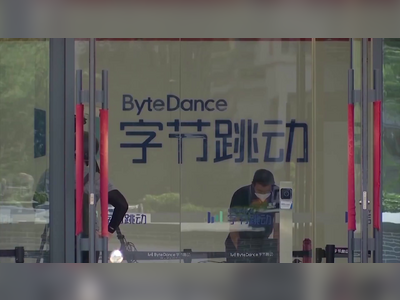The Philippine classrooms are unbearably hot due to high temperatures and humidity, making learning difficult for students.
Teachers described the heat as intolerable, even with multiple fans.
The heat index, which measures discomfort caused by temperature and humidity, reached 46ºC in Daet, Camarines Norte, and 44ºC in Puerto Princesa City.
The Department of Education (DepEd) has reminded schools to follow DepEd Order No. to ensure students' safety during extreme heat.
In the Philippines, the Department of Education announced that school officials have the authority to suspend in-person classes due to extreme heat.
Teachers have reported that even with multiple fans, the heat is unbearable and negatively impacts learning, especially in crowded classrooms.
A teacher in Nueva Ecija, where temperatures are high, shared that her class of 16 students still complains about the heat despite having four fans.
Pasig City Representative Roman Romulo noted that classrooms in the Philippines are not designed to withstand heat, making the situation even more challenging.
The Philippine government, through the DepEd and DPWH, is constructing classrooms across the country with private institutions handling the contracts.
However, according to architect Gerard Lico, many of these classrooms, built to a standard design, are not suitable for the tropical climate of the Philippines.
The classrooms are made of concrete with low ceilings and few large windows, making cross ventilation difficult.
Concrete absorbs and retains heat, and insulation is rarely used between walls due to the cost of hollow blocks, which are the primary building material.
The text discusses the energy inefficiency and discomfort issues caused by the use of concrete and asphalt in tropical climates.
These materials absorb up to 95% of the sun's energy and then radiate it back into the environment, increasing heat.
Lico, an expert, emphasized the importance of equal air inlet and outlet for proper ventilation in classrooms.
In tropical climates, simple window openings may not be sufficient, and traditional classrooms may have a "calado" or gap between the wall and ceiling to allow for cross ventilation.
The Department of Education (DepEd) has reminded schools to follow DepEd Order No. to ensure students' safety during extreme heat.
In the Philippines, the Department of Education announced that school officials have the authority to suspend in-person classes due to extreme heat.
Teachers have reported that even with multiple fans, the heat is unbearable and negatively impacts learning, especially in crowded classrooms.
A teacher in Nueva Ecija, where temperatures are high, shared that her class of 16 students still complains about the heat despite having four fans.
Pasig City Representative Roman Romulo noted that classrooms in the Philippines are not designed to withstand heat, making the situation even more challenging.
The Philippine government, through the DepEd and DPWH, is constructing classrooms across the country with private institutions handling the contracts.
However, according to architect Gerard Lico, many of these classrooms, built to a standard design, are not suitable for the tropical climate of the Philippines.
The classrooms are made of concrete with low ceilings and few large windows, making cross ventilation difficult.
Concrete absorbs and retains heat, and insulation is rarely used between walls due to the cost of hollow blocks, which are the primary building material.
The text discusses the energy inefficiency and discomfort issues caused by the use of concrete and asphalt in tropical climates.
These materials absorb up to 95% of the sun's energy and then radiate it back into the environment, increasing heat.
Lico, an expert, emphasized the importance of equal air inlet and outlet for proper ventilation in classrooms.
In tropical climates, simple window openings may not be sufficient, and traditional classrooms may have a "calado" or gap between the wall and ceiling to allow for cross ventilation.
Translation:
Translated by AI











